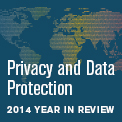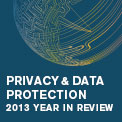 In 2014, regulators around the globe issued guidelines, legislation and penalties in an effort to enhance security and control within the ever-shifting field of privacy and data protection. The Federal Trade Commission confirmed its expanded reach in the United States, and Canada’s far-reaching anti-spam legislation takes full effect imminently. As European authorities grappled with the draft data protection regulation and the “right to be forgotten,” the African Union adopted the Convention on Cybersecurity and Personal Data, and China improved the security of individuals’ information in several key areas. Meanwhile, Latin America’s patchwork of data privacy laws continues to evolve as foreign business increases.
In 2014, regulators around the globe issued guidelines, legislation and penalties in an effort to enhance security and control within the ever-shifting field of privacy and data protection. The Federal Trade Commission confirmed its expanded reach in the United States, and Canada’s far-reaching anti-spam legislation takes full effect imminently. As European authorities grappled with the draft data protection regulation and the “right to be forgotten,” the African Union adopted the Convention on Cybersecurity and Personal Data, and China improved the security of individuals’ information in several key areas. Meanwhile, Latin America’s patchwork of data privacy laws continues to evolve as foreign business increases.
This report furnishes in-house counsel and others responsible for privacy and data protection with an overview of key action points based on these and other 2014 developments, along with advance notice of potential trends in 2015. McDermott will continue to report on future updates, so check back with us regularly.
read more

 Subscribe
Subscribe


